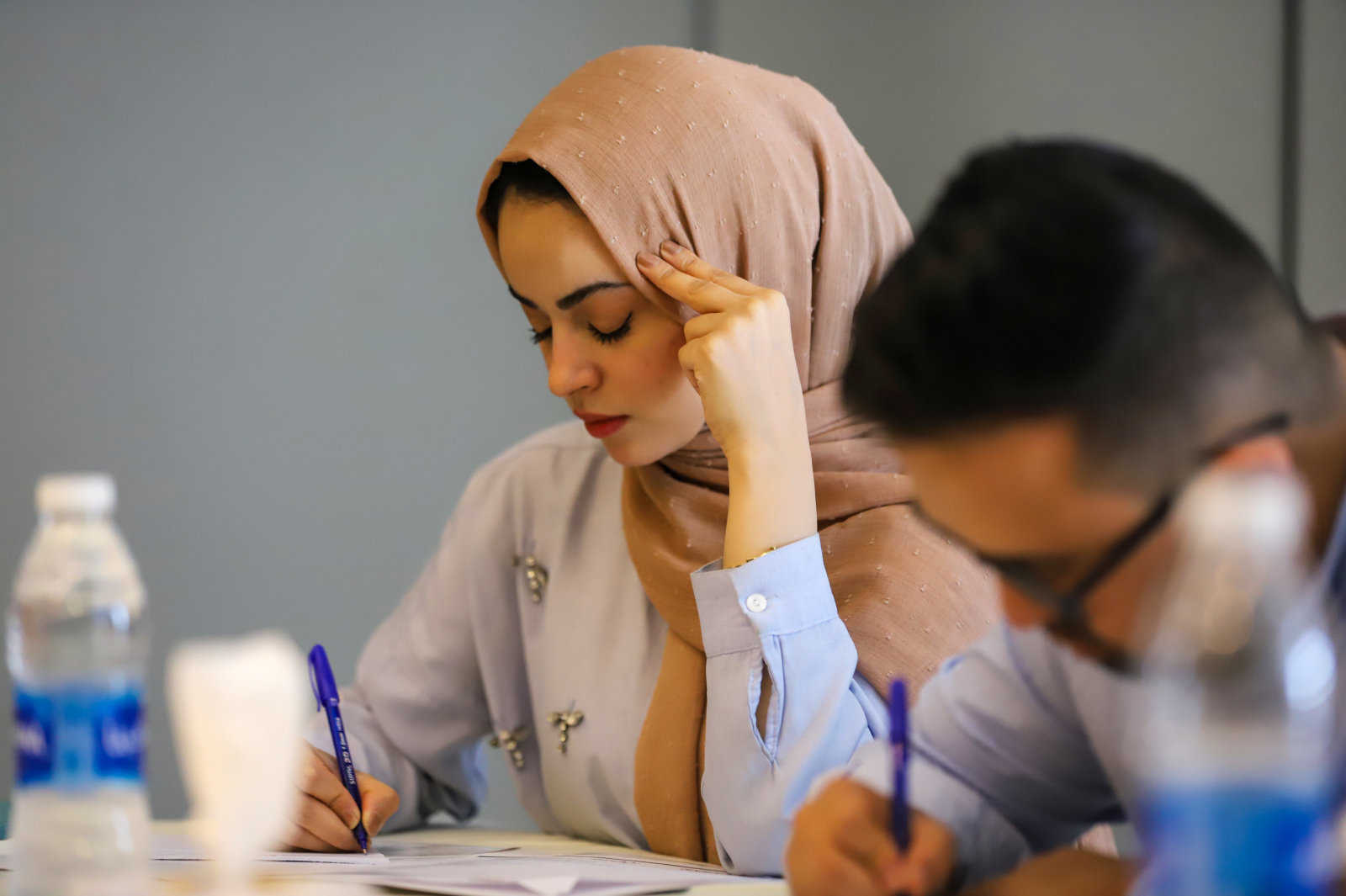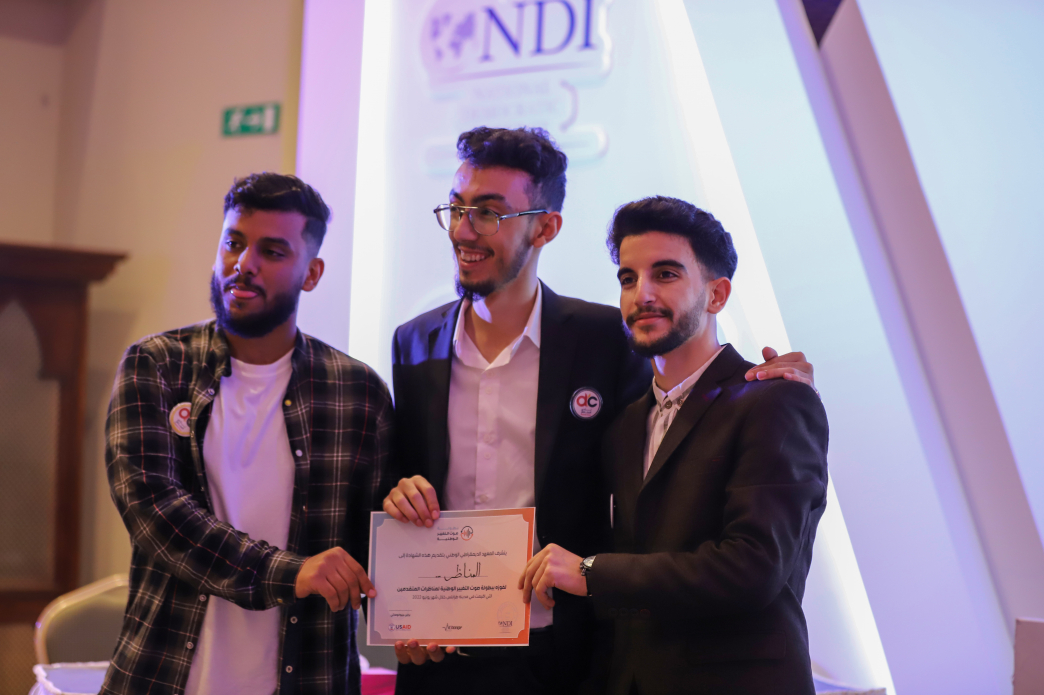
SHARE
Libyan youth face multifaceted challenges, including high unemployment rates, an under-resourced education system and an unstable political environment. Encompassing almost 67% of the population, Libyan youth represent an opportunity for positive democratic change despite the difficulties they bear. Young women in particular face high barriers to entry in civic engagement. However, a 2020 United States Agency for International Development survey found one notable exception: debate clubs.
Understanding the importance of youth voices, including women, the National Democratic Institute (NDI) started the “Voice of Change” (“VoC”) university debate club program. During the 2021-2022 academic year, NDI provided guidance and technical assistance to its eight university debate club (UDC) partners from Benghazi, Gharyan, Jufra, Khoms, Sabha, Tripoli, Zawiya and Zintain, focused on addressing national youth priorities through debate and dialogue. From June 7 to 11, 2022, NDI and its UDC partners hosted the Libyan National Debate Tournament, the culminating event of this year’s “VoC” debate series.
The tournament was divided into two levels of difficulty, advanced and beginner, both including three competitive rounds, resulting in one winning team per level. Youth participants traveled from all over Libya to Tripoli to take part in the tournament, totaling 12 teams from seven different university clubs. The participating teams first won regional competitions and then second round tournaments held during the past year by the UDCs with NDI’s planning and technical assistance.
For the National Debate Tournament, UDC members pre-selected 50 debate topics centered around issues of importance for youth in the current Libyan context, touching on topics relating to elections, public health policy, and public education curricula. With skills learned from NDI training workshops, UDC leaders also created templates for judges to use in determining winners. During the advanced level’s final round, the judges asked the two remaining teams to debate the best way for Libya to achieve stability, weighing the need for national reconciliation and a constitution against the value of immediate elections. A team from The Debater Club from Al-Zawiya won the advanced round, arguing that national reconciliation efforts need to take precedence over the planning of elections. As for the beginner final round, a team from the Ehsan Debate Club from Zintan prevailed in their argument that stability in Libya hangs on the fate of a successfully enacted constitution.
The “VoC” program utilizes a training of trainers (ToT) approach, in which NDI provides workshops for UDC members who then train other students in their universities. The program aims to establish a lively and sustainable debate program for youth across the country. Trainings focus on debate logistics, including sessions on rules, methodology, judging, as well as debate-related skills such as communication styles, argument-building, and public speaking. Exemplifying this, the National Debate Tournament created a space for self-expression, where youth participants spoke eloquently and with excitement about their proposed ideas for building a democratic, stable Libya.
The “VoC” program is expanding this year to include more UDCs to increase diversity in the cohort, geographically and otherwise, and maintain the momentum gained among eager Libyan students in discussing and participating in the political process. Beyond being just a debate competition, the program provides a forum for peer bonding through the open exchange of ideas among young men and women.
NDI's engagement in Libya is implemented with support from the United States Agency for International Development (USAID) through the Consortium for Elections and Political Process Strengthening (CEPPS).
Author: Elza Harb is a Program Associate with the Middle East and North Africa team at NDI.
###
NDI is a non-profit, non-partisan, non-governmental organization that works in partnership around the world to strengthen and safeguard democratic institutions, processes, norms and values to secure a better quality of life for all. NDI envisions a world where democracy and freedom prevail, with dignity for all.



